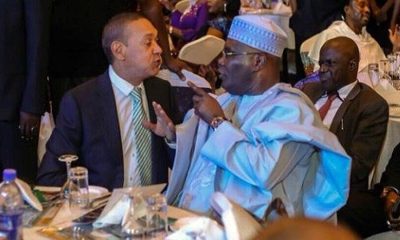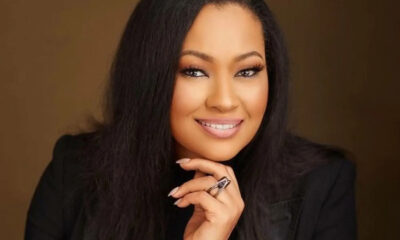News
As Jonathan, Akpabio, others back state police, IGP walks alone

As Jonathan, Akpabio, others back state police, IGP walks alone

The Inspector General of Police, Kayode Egbetokun, appears to be a lone voice in kicking against the proposed state police as a measure to stem the spate of criminalities in Nigeria.
The call for state police has gained traction with the disturbing rise in insecurity manifesting via bloody attacks on communities, banditry and kidnapping across the country.
Already, a bill to establish state police passed a second reading in the House of Representatives on February 20 this year.
The IGP said rather than create state police, the challenges mitigating against effective policing in Nigeria should be addressed.
The IGP’s position is against the position of President Bola Tinubu on state policing.
The President in February this year met with state governors in Abuja during which they considered “the possibility of setting up state police.”
While Egbetokun is saying the country is yet not ripe for state policing, former President Goodluck Jonathan, Senate President Godswill Akpabio, state governors and other eminent leaders of thought are convinced it is the right way to.
They called for necessary constitutional amendments and other actions to accelerate the process.
The IGP and others spoke on Monday during a national dialogue on state police organised by the House of Representatives in Abuja, with the theme: ‘Pathways to Peace: Reimagining Policing in Nigeria’.
Egbetokun, represented by Ben Okolo, an assistant inspector-general of police, said Nigeria was not ready for a decentralised police force.
He said, “It is the submission of the leadership of the Nigeria police force that Nigeria is yet to mature for the establishment of state-controlled police.”
The IGP listed some of the challenges as inadequate manpower, inadequate operational equipment such as vehicles, arms and ammunition, communication equipment, drones, aerial surveillance cameras, security surveillance helicopters, armoured vehicles, and inadequate training of personnel.
He added that state police would create a conflict of jurisdiction and open to abuse by state governors.
Ex-President Jonathan, on the other hand, stated that with the spate of kidnappings, the issue of state police is non-negotiable.
The former President, who chaired the occasion, said, “The issue today is not whether to establish state police but how it should be operated. There is no need to debate about state police. The issues of state police and Coast Guards were accepted at the 2014 National Conference.”
He also said, “For states to have their own police is not negotiable. There is no way we can continue this kidnapping that is going on in this country.”
Jonathan, however, added that for state police to be implemented, the Independent National Electoral Commission (INEC) must be rejigged.
“The issue of voting, the polling booths of INEC, and the use of police during elections has to be reviewed by the National Assembly,” he said.
Minister of Police Affairs, Senator Ibrahim Gaidam, also disagreed with the IGP on state police.
Gaidam said a more decentralised police force would help tackle rising insecurity in the country.
“It is clearly imperative to come together to discuss these critical issues and work towards finding sustainable solutions that will ensure the safety and security of all Nigerians,” he added.
Others who endorsed state police included former Head of State, Gen Abdulsalami Abubakar (retd.); Emeritus Catholic Archbishop of Abuja, John Cardinal Onaiyekan; and the Ooni of Ife, Oba Adeyeye Ogunwusi.
President Tinubu represented by Vice-President Kashim Shettima, who declared the event open said the idea of state policing was not just a mere policy proposal but also a potential milestone in the evolution of the nation’s law enforcement framework.
This, he stressed, would create the opportunity to fashion law enforcement in a manner to closely address the various demands of communities across the country.
He said the administration was aware of the complex security issues confronting Nigeria, and continually developing and refining its strategies to address the challenges effectively.
“The commitment of the administration of President Tinubu to reform the police force and enhance security at both the national and state levels is unwavering,” he said.
News
World Bank approves Tinubu’s $632m loan request

World Bank approves Tinubu’s $632m loan request
The World Bank is poised to approve $632 million in new loans to Nigeria today (Monday), amid growing concerns over the country’s expanding debt profile.
The loans are intended to support important sectors such as nutrition enhancement and quality basic education.
According to data obtained from the World Bank’s website on Sunday, the two loans scheduled to be approved today are $80 million for the Accelerating Nutrition Results in Nigeria 2.0 initiative and $552 million for the HOPE for Quality Basic Education for All programme.
Both projects are now in the negotiating phase and are likely to gain final clearance later today.
These new loans are part of the World Bank’s overall strategy to support Nigeria’s development agenda, which focuses on healthcare, education, and community resilience.
The loans will support the government’s efforts to improve nutrition and education for Nigerian children.
Additionally, the World Bank approved a $500 million loan for Nigeria’s Community Action for Resilience and Economic Stimulus Programme on March 28, 2025, a significant step towards addressing the country’s economic challenges through expanded access.
The initiative, formally known as the NIGERIA: Community Action (for) Resilience and Economic Stimulus Programme, is intended to give critical support to households impacted by economic downturns while also strengthening community resilience.
The initiative focuses on vulnerable populations, providing assistance to households and small companies to help them cope with economic difficulties.
READ ALSO:
- Okada rider allegedly stabbed to death by wife over money
- Police rescue two persons abducted in Lagos
- Miyetti Allah accuses Benue community of poisoning 20 cows
The loan clearance is likely to considerably boost Nigeria’s efforts to revive the economy through grassroots backing, especially given current issues such as inflation and high living costs.
The stimulus plan will prioritise enhancing food security and developing economic possibilities for the populations most affected by recent economic changes.
This decision came after a delay in distributing funds for a previous loan aimed at poor and vulnerable Nigerians.
Further investigation by The PUNCH revealed that the World Bank disbursed around $315 million to Nigeria from the $800 million allocated for the National Social Safety-net Program Scale Up.
Nigeria is yet to receive further funding from the World Bank for this loan project, which was approved in December 2021. The delay in grant release is most likely due to fraud detected under the initiative.
In honour of the 2023 International Day for the Eradication of Poverty, President Bola Tinubu unveiled a social safety net programme that will distribute N25,000 to 15 million households over the course of three months.
The Federal Ministry of Humanitarian Affairs and Poverty Alleviation was responsible for managing the $800 million World Bank loan initiative.
However, due to allegations of embezzlement, the federal government was forced to stop the cash transfer program for further investigation and reform.
Betta Edu, a former humanitarian minister, was previously suspended for misappropriating N585 million set aside for palliative care distribution.
READ ALSO:
- Wike’s aide slams Atiku, says it’s too late to buy integrity
- Reps Committee recovers N21.4bn from four oil companies
- West African juntas impose levy on imported goods ECOWAS nations
Furthermore, Sadiya Umar-Farouq, Edu’s predecessor, was under investigation by the EFCC. The former minister is being investigated for allegedly laundering N37.1 billion during her stint as minister.
The World Bank also imposed sanctions on people and businesses discovered to be engaging in fraud under the initiatives.
According to the World Bank’s official website, this will bring Nigeria’s total approved loans to $9.25 billion over three years, indicating a growing reliance on multilateral funding to support critical sectors of the economy such as infrastructure, healthcare, education, and financial resilience.
A review of Nigeria’s World Bank loan approvals since 2023, under President Bola Tinubu’s government, reveals a huge rise in funding commitments.
In 2023, the World Bank approved $2.7 billion in loans for renewable energy, women’s empowerment, education, and the power sector. In 2024, funding approvals totalled $4.32 billion for various projects.
This increase was largely due to Nigeria’s growing need for financial assistance to stabilise the economy amid fiscal pressures and rising public debt.
Under President Bola Tinubu’s administration, the World Bank granted around 11 different credit projects for Nigeria.
In less than two years, the federal government has acquired loans from the World Bank totalling $7.45 billion, raising concerns about the mounting debt burden. According to data from the Debt Management Office, the World Bank’s portion of Nigeria’s external debt is $17.32 billion as of the third quarter of 2024.
The International Development Association is owing the majority of this debt, which amounts to $16.84 billion, or 39.14 per cent of Nigeria’s total external debt.
The International Bank for Reconstruction and Development, another World Bank subsidiary, is owing $485.08 million, or 1.13 per cent.
While the planned World Bank loans may give much-needed budgetary relief, concerns persist about the country’s mounting debt burden.
According to recent data from the Central Bank of Nigeria, the country has spent $5.47 billion servicing external debt in the last 14 months, underscoring the strain on its foreign reserves.
World Bank approves Tinubu’s $632m loan request
News
Investigation of wanted businesswoman Achimugu not linked with Atiku, Sanwo-Olu – EFCC
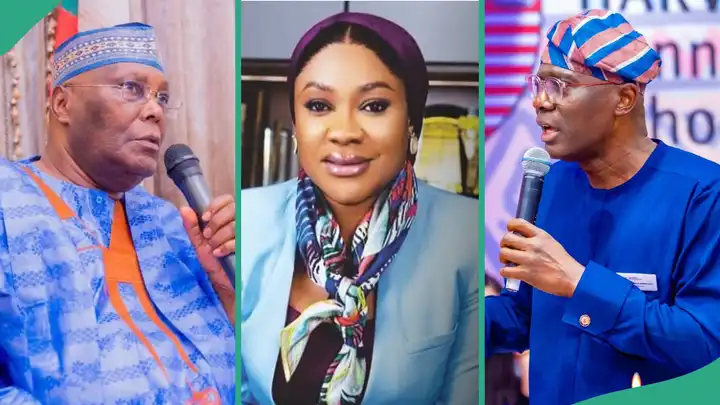
Investigation of wanted businesswoman Achimugu not linked with Atiku, Sanwo-Olu – EFCC
The Economic and Financial Crimes Commission has reacted to media reports linking its investigations of Ms. Aisha Achimugu with political undercurrents involving former Vice President Atiku Abubakar and Lagos State Governor, Babajide Sanwo-Olu
This is contained in a statement by the commission on Friday night.
The statement read, “We wish to state unequivocally that the investigations of Achimugu have no correlation of any kind with the two political actors. She is being investigated for alleged criminal conspiracy and money laundering and has since been declared Wanted by the Commission”.
The EFCC started investigating Achimugu in 2022. Although she approached the court to obtain an injunction restraining the Commission from arresting, investigating, inviting or detaining her for any alleged criminal act, the injunction was challenged and vacated on Wednesday, February 19, 2025 by a Federal High Court sitting in Abuja.
The court ruled that “…no court has the power to stop the investigative powers of the Police or EFCC or any agency established under our laws to investigate crimes when there is reasonable suspicion of commission of a crime or ample evidence of commission of an offence by a suspect.”
“The court further upheld the interim order of forfeiture of assets of Achimugu suspected to be proceeds of crime, dismissing her suit against it as lacking merit .
“The foregoing clearly establishes that the EFCC’s case against her has no immediate or remote nexus with any politician or any veiled or open reference to any political engagement or transaction.
“The EFCC is non-partisan and non-sectarian. We enjoin the public to continue to keep faith with the professionalism of the Commission without imputing any extraneous consideration to its works.”
News
Why governors’ forum is silent on Rivers emergency, by DG
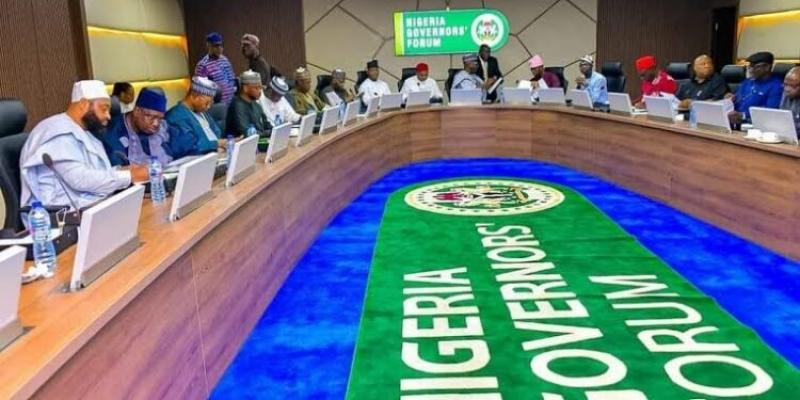
Why governors’ forum is silent on Rivers emergency, by DG
The Nigeria Governors’ Forum (NGF) yesterday attributed its neutral position on the recent declaration of a state of emergency in Rivers State to the need to steer clear of taking positions that may alienate members with varying political interests.
Taking positions on contentious partisan issues, the NGF said, would not augur well for it, especially in view of its past experience in fundamental division.
Notwithstanding, the declaration of the state of emergency by President Bola Tinubu yesterday generated more kudos and knocks from across the country.
Special Adviser to the President on Senate Matters, Senator Basheer Lado, said the action of the president was meant to ensure protection of lives and restoration of law and order in the state, while the President’s Special Adviser on Media and Public Communications, Sunday Dare, said his principal was required to “avert needless harm and destruction .”
National Publicity Secretary of the ruling All Progressives Congress (APC), Felix Morka, said Tinubu, by his action, cleared what had manifested as a constitutional crisis in Rivers state.
But former President Goodluck Jonathan saw it from a different perspective.
READ ALSO:
- Senate didn’t get 2\3 majority for Tinubu emergency rule in Rivers –Tambuwal
- FG destroys another 200 containers of expired drugs
- Rivers court bars woman from answering ex-husband’s name
He described “abuse of office and power by the three arms of government in the country“ as a dent on Nigeria’s image.
The NGF, in a statement by its Director General Abdulateef Shittu, said it is essentially “an umbrella body for sub-national governments to promote unified policy positions and collaborate with relevant stakeholders in pursuit of sustainable socio-economic growth and the well-being of the people.”
It added: “As a technical and policy hub comprising governors elected on different platforms, the body elects to steer clear of taking positions that may alienate members with varying political interests.
“In whatever language it is written, taking positions on contentious partisan issues would mean a poor sense of history — just a few years after the forum survived a fundamental division following political differences among its members.
“Regardless, the Forum is reputed for its bold positions on governance and general policy matters of profound consequences, such as wages, taxes, education and universal healthcare, among others.”
It asked for “the understanding of the public and the media, confident that appropriate platforms and crisis management mechanisms would take care of any such issues.”
Why governors’ forum is silent on Rivers emergency, by DG
-

 Uncategorized2 days ago
Uncategorized2 days agoBreaking: Moon sighted in Saudi, UAE, others, Eid-Fitr holds Sunday
-

 metro2 days ago
metro2 days agoRamadan ends in Nigeria, Sultan announces March 30 as Eid-el-Fitr
-
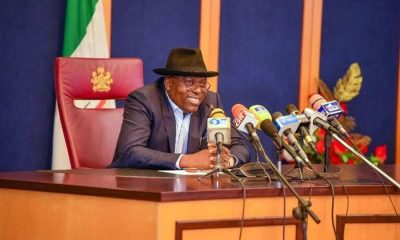
 metro3 days ago
metro3 days agoFubara reacts as Ex-HOS, Nwaeke accuses him of bombing oil pipelines, Rivers Assembly
-

 Opinion3 days ago
Opinion3 days agoBarbaric mass burning of innocents in Edo, by Farooq Kperogi
-
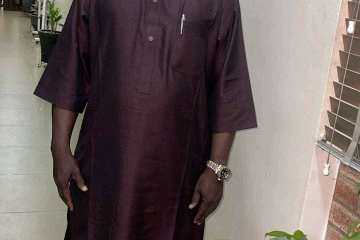
 metro2 days ago
metro2 days agoEmbrace environmental sanitation during Eid-Fitr, LAGESC boss tells Lagosians
-
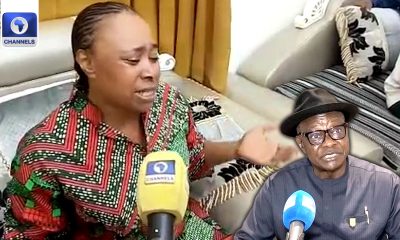
 metro3 days ago
metro3 days agoEx-Rivers HoS wife cries for help over husband’s safety
-
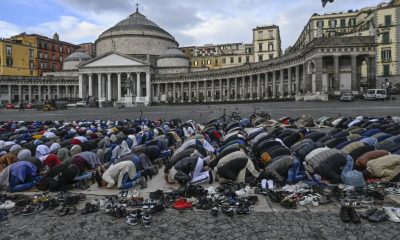
 International18 hours ago
International18 hours agoIn pictures: Eid celebrations around the world
-
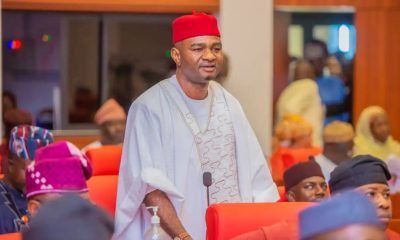
 metro3 days ago
metro3 days agoNatasha: Emmanuel Uduaghan threatens to sue Senator Nwaebonyi

